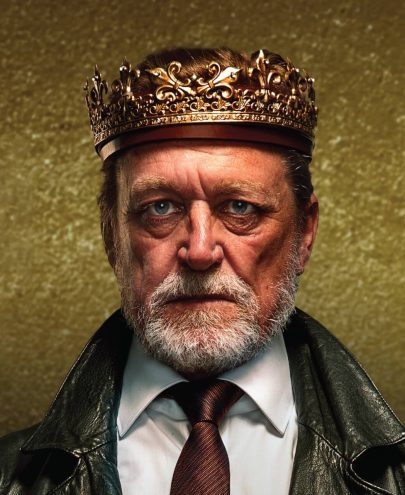Sep 1, 2014 Theatre
Silo Theatre, directed by Oliver Driver
Herald Theatre
August 29, 2014
While Belleville might mean “beautiful city”, this Silo production is eager to underline the disparity between the romanticised Paris of an Audrey Hepburn film and Hemingway’s imagination, and the reality of being an outsider in a foreign place. Shards of graffiti-covered walls dominate the squalid apartment of married Americans Abby and Zack, as if the working-class Belleville street has followed them inside.
They’re two Americans in Paris. Abby (Sophie Henderson), an actor turned yoga teacher who has no class to teach; Zack (Matt Whelan), who works for Doctors without Borders. Their visa conditions mean that once they leave, they can’t return – they are trapped indefinitely in Paris. She’s withdrawing from her antidepressants. He’s got a craving for weed. You know paranoia is going to the theme of the day in American playwright Amy Herzog’s stage thriller.
John Verryt’s claustrophobic set pushes the action right forward (you worry Henderson and Whelan might fall into the audience) to emphasise the couple’s containment. The walls of their apartment have been sliced through so we can catch glimpses of the pair in the bedroom and bathroom either side of the stage. While there’s no camera to direct our gaze, Verryt and director Oliver Driver ensure we’re very much grubby voyeurs as Abbey and Zack go about their apartment in various stages of undress. Even the outside window is situated so we can look inward to their bedroom. You would think they had no room to hide from each other, but you’d be wrong.
Abby and Zack are the type of couple who leave their wedding photos out on the coffee table and awkwardly urge you on to look at them when you visit. They married young, the first of their friends, and they’re afflicted with the millennial conundrum of shooting for dreams versus settling for stability – they feel their twenties fast disappearing. Abby says her parent’s mantra that it doesn’t matter what you do as long as you’re happy is “the worst thing to say to a child”. Paris was not the cure for their relationship they hoped it would be.
Their antithesis is their Senegalese neighbours and landlords Alioune (Tawanda Manyimo) and Amina (Karima Madut), younger and with kids. They hover around the edges of Abby and Zack’s life, both couples baffled by each other’s life choices.
So much of the play is focused on us watching and scrutinising Abby and Zack’s relationship and dynamic together, and Sophie Henderson and Matt Whelan deliver a volatile intimacy. Moment by moment they shift from playful affection on the couch to violent lurches away from each other in mistrust. Henderson, wrung with anxiety, her idealism fast disintegrating, gives a remarkably nuanced performance. Whelan makes the most of his dominating physicality, a boy-giant who retreats into a numb blank face when emotionality gets too much.
The designers throw a number of tricks at the production, designed to unsettle us. Sean Lynch’s lighting blurs reality and the character’s headspaces. His opening state washes Verryt’s angular set in shadows to resemble a cubist painting. Thomas Press’s sound design is movie-worthy. Door knocks shatter the silence, door slams reverberate long afterwards. Hums and a thumping low bass bear in on them. It’s a strong sensory experience for us – even the smell of Zack’s weed lingers in the air.
Belleville, more than most plays that attempt this genre, successfully brings a Hitchcockian film thriller to the stage. Driver is acutely aware of what’s possible onstage, but also employs a filmic sensibility to his pacing. There are rapid cuts and drawn-out scenes (tracking shots with no cutaways, if you like) where the tensions rise to boiling point as we watch the characters’ behaviour with acute attention. Yet these carefully pitched slow builds are undermined by the script when characters over-explain their motivations in big globs.
Herzog has fun toying with genre conventions. There’s a particularly sharp knife she teases us with. Alioune and Amina react with instinctual shock when Zack picks it up and brandishes it. He’s shocked too – “I’m not a psychopath”, he reassures. In this aborted slasher moment, Herzog seems to be declaring, “I’m too good for that.”
And just when you think it’s all heading to a horrific reveal, the play withholds, giving us instead a slow, methodical scene that provides no new information but lets the imagination do its worst. It’s very effective.
So there’s a clever play against genre, but the play also suffers under a failure of genre. While the bells and whistles in its design and the rich psychological detail in the characters’ back stories help us get into their heads, the play doesn’t get into our heads. Crucially, we are never given good reason to doubt Abby’s sanity, despite her jumpiness, alcohol problems and psychological scars. The play wants you to go back and forth between them, but our suspicions fix early, meaning when the reversals come, they are not as electrifying as they could be.
Belleville is a play that rewards attention. As the unused magnifying glass on a side table suggests, all the clues are already in the drama. There are many clever patterns, foreshadowings and a few red herrings. If the test of a great thriller is that it rewards a second viewing, this one doesn’t feel like it would quite get there. But it is a very stylish tease, able to grip you in your seat and certainly worth seeing once.
To September 20. silotheatre.co.nz
Photo: Andrew Malmo





